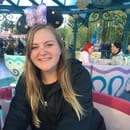Thousands of people all over the country marched two weeks ago to protest issues of gender inequality and other forms of social injustices occurring in America. Some of the issues discussed included sexual harassment and assault, LGBTQIA+ rights, and other intersections of feminism, including racism.
These words are a lot. I know that when I first mentioned all of these terms to my parents, they were extremely confused- as was I when I first heard them. Honestly, the umbrella term, LGBTQA+, is a lot of letters to remember if you have no idea what they stand for. This article will hopefully shed some light on the meaning of these terms and why the heck all of us feminists care so much about them.
First, let’s look at the word, ‘feminist.’ This word has been around for quite some time, and those who identify as such have received some major flack over the years. A common misconception about feminists is that they all hate men or want women to rise up in power and control men. That statement is absolutely not true!
According to Nigerian author, Chimamanda Ngozi Adichie, “A feminist is a person who believes in the political, social, and economic equality of the sexes.” By definition, a feminist does not hate men, but rather loves men and women equally. In my opinion, feminism is not about bringing men down, but about bringing women up. So when a women goes to a march proudly declaring that she is a feminist, she is really saying that she wants women to be treated the same- not better or worse, but the same- as men.
The next term is sexual harassment and assault. Sexual harassment refers to unwanted acts or comments made to someone on the basis of their sex or sexuality, according to the U.S. Equal Employment Opportunity Commission. This is illegal in the workplace and in schools, according to Title IX, which protects students from discrimination on the basis of sex in the classroom.
An example of sexual harassment would be requests for sexual favors from a professor, repeated sexually explicit comments, or even offensive remarks about a person’s sex. Furthermore, sexual assault refers to sexual contact or behavior without the explicit consent of the recipient, according to the Department of Justice. Sexual assault is illegal and punishable by prison in California, according to the Rape, Abuse & Incest National Network (RAINN). All of this means that derogatory remarks about women and unwanted sexual advancements are illegal and should not ever be happening.
Unfortunately, that is not the reality. Many people know about the recent Harvey Weinstein and Larry Nassar cases and they are upset. These men repeatedly assaulted women and got away with it for years, even with these laws in place. People march for these laws to be carried out, and for the end of sexual assault and harassment. Women and men are assaulted every day and the people marching want that to stop. No one deserves to be assaulted, period.
I will next try to explain what LGBTQIA+ is as an acronym and why people care to say the whole thing. According to the UC Davis LGBTQIA Resource Center, the acronym stands for Lesbian, Gay, Bisexual, Transgender, Queer, Intersex, and Asexual. The term Lesbian refers to women who are attracted to other women, Gay refers to men who are attracted to other men, and Bisexual refers to men or women who like both men and women. These three terms refer to sexuality, or sexual preference. Transgender, on the other hand, refers to gender identity, which is totally different. A person who is transgender does not identify with the sex they were born into. A person who is Queer may be any of these things. This term was originally a slur, but people have reclaimed it to describe themselves as anything not fitting in with the “norm.” An Intersex person is born with both male and female sex organs. An Asexual person feels no sexual attraction or desire for sexual activity. The plus sign refers to any groups not mentioned but feel a part of this community. These are some big words that help define different aspects of one’s identity. They are important to learn because they help people understand their own lives.
Lastly, is intersectionality. This term, defined by UC Davis, refers to “the way that multiple systems of oppression interact in the lives of those with multiple marginalized identities.” In other words, a woman can be marginalized because of her gender and her race at the same time. Other women can be marginalized for being physically disabled, of a different religion, etc. There are many reasons why society can disadvantage women, and this term defines how all of those things come together. This course of study is too often overlooked, and even some so-called feminists forget that there are many ways a woman can be oppressed.
I am hoping that the reason some people are not feminists today is because they simply didn’t know what it means to be a feminist. Perhaps they were feminists all along, and they did not have the language to describe it. Perhaps they just needed a refresher course on why we still need feminism today. Because truthfully, it is my opinion that if you know what feminism is, you’re going to want to be a feminist. Because equality just makes sense.
If you take issues with this article, that is perfectly fine. I am not an expert in any of these fields; I just care a lot and I thought someone should take the time to explain these things. If you just don’t agree with me, that’s fine, too. I just ask that you respect me when I march and listen to what I have to say.


